- Home
- Farley Mowat
Gorillas in the Mist Page 3
Gorillas in the Mist Read online
Page 3
There followed the experience that would determine the future course of Dian’s life.
Sound preceded sight, and odor preceded both in the form of an overwhelming, musky, barnyard yet humanlike stench. Then the thin mountain air was shattered like window glass by a high-pitched series of deafening screams. Nothing can possibly prepare one for such a terrifying avalanche of sound. The only thing that prevented me from fleeing down the misted slopes of the volcano was the presence of Manual behind me and the Congolese tracker, Sanweke, guiding Alan Root ten yards ahead.
We all froze where we stood hip deep in a soaking-wet bed of stinging nettles surrounded by a seemingly impenetrable wall of foliage. For a minute the chill, fog-dripping forest was unbelievably silent, then it was rent by even more ferocious screams punctuated by thunderous, drumlike tattoos. Once more we froze until the forest was hushed.
We could see only a few feet into the lush, green mass, but Sanweke now very carefully and almost silently began cutting a window through it with his panga bush knife. Alan motioned me forward and I crept to his side, both of us stooping low. He pointed, and I peered through the opening. There they were: the devilmen of native stories; the basis of the King Kong myth; the last of the Mountain Kings of Africa.
A group of about six adult gorillas stared apprehensively back at us through the opening in the wall of vegetation. A phalanx of enormous, half-seen, looming black bodies surmounted by shiny black patent-leather faces with deep-set warm brown eyes. They were big and imposing, but not monstrous at all. Somehow they looked more like members of a picnic party surprised by interlopers. Their bright gazes darted nervously from under their heavy brows as they tried to determine if we were dangerous. They were evidently wondering if it was safe to stay or if they had better run for it.
“Kweli nudugu yanga!” These words in Swahili, whispered by the awestruck Manual, who was also seeing his first gorilla, summed up exactly what I was feeling.
“Surely, God, these are my kin.”
I left Mt. Mikeno next day, never doubting that somehow I would return to learn more about the Virunga gorillas.
After three and a half hours spent struggling down the mountain through thunder, lightning, and mud, Dian reached the Traveler’s Rest, freezing and covered in muck from head to foot.
Walter Baumgartel greeted her warmly, and after a good night’s sleep Dian awoke to the sounds of chickens clucking and Baumgartel’s Siamese cat lapping fresh cream from a bowl on the terrace. When she looked out the open window, she saw Baumgartel striding across the tidy courtyard in his pyjamas, bringing a pail of hot water for her bath. In the background the blue-green Virungas seemed to dissolve in the pale morning mist. She watched them slowly retreating into their own mystery.
— 2 —
Dian had never thought she would be as pleased to see Franz Forrester as she was in the moment when she stepped off the plane in Salisbury and searched the crowd in the arrivals area for a friendly face. There was the doggedly devoted Pookie, accompanied by his smiling, handsome mother. They took her off to the elaborate family town house where Dian unburdened herself of the troubles she had endured with her white hunter.
“Don’t let it spoil your trip, my dear,” Mrs. Forrester consoled her. “Just put him out of your mind.”
Next day Dian and Franz drove two hundred miles south to the wide sweep of the home farm—a tobacco plantation near Victoria. Here she met Franz’s elder brother, Alexie. Shirtless, dark-haired, tall and brawny, he was riding a tractor in a tobacco field when she first saw him. She was impressed.
The Forresters’ farm is truly lovely — horses, gardens, tennis, a big, gracious house that fits the count’s background, and lots of black servants. I like them all, but Alexie is quite remarkable. I think he is inclined to be arrogant, but there’s something powerful about him I never felt with Pookie. He’s thirty-one, single, and just about the best-looking man I’ve ever laid eyes on. Pookie sulked last night as
Alexie and I really hit it off and kind of ignored him all day.
Pookie wants me to go off on a tour and see Victoria Falls, but if I go I won’t see Alexie again. And so-o-o-o …
Politeness overcame passion and she took the tour. But it was not the last she was to see of Alexie.
She heard from him soon after she’d returned to work at the Korsair Children’s Hospital.
Alexie! Oooh what a letter! He has been traveling in Mozambique to survey tobacco plantations and opportunities, but says there’s not much security there for whites. It is not the place to get married in and raise a family and work for a future, he says. He seems terribly eager for my advice and thinks he’d like to come over here and go to Notre Dame University for a while, if I approve!
Dian approved, though cautiously. “I believe you would like this country but doubt you would care to live here. I’d be happy to show you ‘my’ farm and introduce you to the Angus family—all ninety of them.”
The following autumn Alexie flew to New York, then on to Notre Dame to register. Dian had anticipated an early reunion with him, but as she soon discovered, it was first things first with Alexie. Although he phoned her frequently, he did not come to Louisville. “It’s three hundred miles from South Bend,” he told her, “and I don’t have the time to spare just yet.”
It was not until Thanksgiving that he found the time.
Alexie has just left after his week here…. I really need all of this week to recover; tornadoes and hurricanes have a lot to learn from him! It seems he has taken a part-time job that occupies his weekends, thus he hasn’t been able to make it down here and was too embarrassed to go into details before.
At first he seemed stiff and distant in his city clothes, but when he shed them for farm attire to help with the chores at Glenmary, he exuded the same appeal she had felt when she met him on a tractor at his family’s estate. They became lovers.
But when he returned to Notre Dame, he left behind him a confused and resentful woman.
I cannot as yet express what I feel or don’t feel about him. I can say this, though-I will have nothing to do with him seriously until he is through taking his bows. I would say he is suffering from a rather enlarged cranium, and rightly so, because everybody in his university, business, and social world is apparently approaching him on bended knee just to share the aura of his personality and brilliant magnetism.
The brief relationship between them already seemed to be waning. Dian immersed herself into her several projects. In addition to her regular job at the hospital, she gave slide shows to local service clubs for a small fee; she was trying to sell her 16mm safari film to a television program, Bold Journey; she was attempting to interest the National Geographic in her still pictures of the Karamojong tribe; and she was working on several magazine articles.
Dian spent at least three hours each night writing—usually scratching out half of what she had written the night before. One piece, entitled “I Photographed the Mountain Gorilla,” ended:
It was with no small degree of reluctance that I departed from the Virungas, the Roots, Sanweke, and the gorilla families I had come to know and respect for their individuality, their independence, and their majesty.
I am deeply concerned over their future. How much longer will they continue to thrive, in view of the many opposing interests threatening their habitat-poachers, agriculturalists, and pastoralists? Will an uneasily settled, newly independent Congo cease to care about the anthropoid treasures it harbors? Will the gorilla, like so many other wild animals, merely become the hapless victim of our times, whose future bends to the will of frenzied human aggrandizements?
This article produced only rejection slips from Saturday Evening Post, Life, and Reader’s Digest. Long discouraging months were to pass before any of the African material found a publisher. Eventually, the Louisville Courier Journal’s weekend color supplement printed stories and photos by Dian on the gorillas; on her meeting with the celebrated paleoanthropologist, Louis Leakey, at
Olduvai; and on other aspects of the safari. When she received her first check, for one hundred dollars, she was so proud that she photographed herself holding it and sent the picture to her mother in California.
With the publication of the safari articles, Dian became a minor celebrity in Louisville.
Next Saturday night I have to go to Jim and Ann Pope’s house for dinner with my safari movies to show the mayor, the Louisville zoo director, and others. I’m a bit nervous that the zoo director will detect my ignorance. At any rate, I have my new suit and pearls, so at least I’ll look all right if I call a kongoni a hartebeest.
Dian’s rejections by national publications made her realize that her writing was not up to professional standards, so she enrolled in the Famous Writer’s School, a correspondence course fronted by well-known American authors.
Applying her lessons diligently, she began a novel for young people, set in Africa.
When her friend Mary White asked how it was going, Dian replied glumly, “The keys are sticking from my sweat dripping on them, and I’m trying desperately to finish the stupid thing before it finishes me!”
She eventually sent the manuscript to the Doubleday publishing company and with a delirious sense of freedom went back to helping on the farm in her spare time and running through the fields playing with the dogs.
At Christmas, Alexie turned down Dian’s invitation to return to Louisville. She was furious and spent the holidays with her parents in California, doing a slow burn. On her return:
I collected the mail, which included two pious “forgive me”-type letters from Alexie. Then a phone call, and another lo-o-ong letter. He is coming, finally, on the twenty-eighth for four days. Just between us, I shall be very happy to see him, but I hope I don’t show it!
And after the visit:
Yes, Alexie now says he wants to marry me. I am adamant, though, about waiting until my African safari debt is paid off, and that is another seventeen months and fifteen days away. A lot can happen in that time, but it is a chance we both have to take.
Doubleday’s response to her manuscript arrived. The editors felt her book should be directed to the adult market so she could take fuller advantage of the wealth of material.
“With due respect to their opinions,” she told a friend, “I can’t see why the book can’t sell to both the juvenile and adult markets. I refuse to drop my characters—they’re a product of my Smith Corona womb and just can’t be aborted now.”
Doubleday advised they were returning the manuscript with a draft of suggested revisions. However, the changes asked for were so extensive that she lost hope and abandoned the book.
Dian had almost given up again on Alexie Forrester when he wrote to say that his mother was coming to the United States and was eager to meet her parents.
This announcement came on such short notice that by the time Dian could call and warn her mother, the Countess Forrester had already arrived in San Francisco—with Alexie in tow. Mrs. Price was in a frenzy.
“I would have liked to entertain them properly,” she wailed, “but how can I with so little time?”
“You don’t have to do anything special,” Dian told her.
“I presume since they’re coming here your friend must have serious intentions?”
“That’s difficult to know.”
“Then what is this all about?”
“Don’t take it so seriously, Mother. Mrs. Forrester has a sister in San Francisco, a Roman Catholic nun, and she’s probably going mainly to see her.”
Alexie and his mother arrived at the Prices’ home for dinner, accompanied by Sister Maura, a senior administrator in the California Catholic school system. Kitty and Richard gave the visitors a cordial reception, though Kitty was so nervous she was shaking. She felt that her daughter’s entire future lay in her hands. And marriage into such a distinguished family was more than she could have dreamed of for her only child.
As Dian may have anticipated, the Forresters were not impressed by the Prices. Though Alexie and his mother did their best to conceal this fact, Sister Maura was openly hostile. From her rigidly Catholic point of view, the Prices were living in sin since Kitty had been divorced. Dian’s already shaky relationship with Alexie was further jarred by this unpleasant complication.
Dian again immersed herself in her own work, still trying to rid herself of the safari debt. She was living so close to the bone that she was occasionally negligent about her rent, and at one point the power company cut off her electricity.
This period of drab endeavor was relieved by the attentions of a handful of well-to-do Louisville admirers. Although Dian found these men and their lives superficial in the extreme, she was not above using her experiences with them to impress her society-conscious mother, and perhaps to excuse her failure to ensnare the illustrious Alexie.
“My social life is a whirl. Cream of Louisville society. Mostly I’ve been seeing this teddy-bear type who maintains a job at the university here but really doesn’t have to work. Very leisurely. We went to his sister’s house for an afternoon of riding—very plush, with a stable full of show horses and jumpers and a groom for each horse. During cocktail hour I showed the African movies. Then he dragged me to some in-laws for the most ostentatious birthday party, which took place in a house that must have been spread over at least an acre—Olympic-sized swimming pool, tennis courts, formal gardens, and a go-go girl rented for the evening, plus a combo. So, you see, I don’t have much time to brood about Alexie, though he still calls all the time.”
In his abrupt and unpredictable way, Alexie suddenly appeared in Louisville, playing the ardent suitor. He demanded, rather than proposed, marriage and insisted on setting a date for the following August. Dian allowed herself to be swept along but not overwhelmed by him.
He has promised me an engagement ring made from a family heirloom belonging to the Austrian royals, but what he gave me was a silk negligee covered with lace-breathtaking but somewhat impractical.
Anyway, the weekend was a dream. One of the happiest I’ve ever had. We spent the day at Glenmary just talking about our love and at night went to Mrs. Henry’s-Mary White’s mother-and I got all dressed up in borrowed plumes. We went to the Old House for chateaubriand and wine, then on the town and danced to dawn.
When Alexie returned to Notre Dame, Dian’s skepticism about a future with him had been somewhat dispelled. But not for long. Within a month he had changed his plans.
“He now wants to postpone the wedding for two years!” she wrote to the Prices. “He says, being a student, he feels he’s not ready financially to take on a wife! Of course, I would intend to work, but that doesn’t seem to be his style. He feels some horrible stigma attaches to the working wife. That aunt of his, the nun, influenced him greatly. I know she didn’t like me—or you, I might add. You know, being divorced and so on. Anyway, please don’t be heartbroken because I’m not. I’ve made it clear I don’t intend to wait around for another two years if he can’t make up his mind.”
A few weeks later, in March 1966, Dr. Louis Leakey, whom she had not seen or heard from since her visit to Olduvai Gorge three years earlier, arrived in Louisville on a lecture tour—and the course of Dian’s life was irrevocably changed.
— 3 —
The auditorium was filled almost an hour before the lecture began, and I had to sit nearly at the back. I had brought along the three articles I’d written for the Louisville Courier Journal about my African safari. After Dr. Leakey had given his talk, which enthralled the audience, I nervously joined the line of people eager to speak with him. When my turn came, he gave a crinkly smile of recognition and gave my hand a good long squeeze. I was so surprised he knew me that I just pushed my damp and wrinkled articles into his hand with the rushed explanation that he might be interested in reading the article on Olduvai.
His eyes narrowed into the perceptive squints that I was later to know as his “keen” look. “Miss Fossey, isn’t it? Please wait until I’ve finishe
d with all these people.” Not knowing what to expect, I waited at the back of the stage until finally he came over and started throwing a barrage of questions at me. Had I gone to Kabara? With whom did I go? Why did I go there? How often had I been able to see the gorillas? What was my current profession, and what were my plans for the future?
I told him that all I really wanted was to spend my life working with animals-that had always been my dream, and I was especially interested in the gorillas on the Virunga mountains.
Leakey was again struck by the intensity of this tall, handsome woman who had lingered in his memory long after their first meeting.
“And how is your ankle? Did it heal properly?”
She looked at him, astonished that he recalled the incident, then laughed. “Yes, you bandaged it beautifully. Not a bone out of place.”
“Come to my hotel tomorrow morning at eight. You might be just the person I have in mind to start a long-term study of gorillas.”
During that night half my mind was already planning resolutely for the dozens of things that would need to be done before leaving for the Virungas, while the other half kept admonishing, “It’s not possible. Things just don’t happen like this!” In the morning I rushed off to the hotel on my way to work, wearing my weary white hospital garb, though I’d been sorely tempted to don my treasured safari clothes.
Our interview lasted about an hour. Dr. Leakey did most of the talking. He praised Jane Goodall, then in her sixth year studying chimpanzees. Using her as his prime example, he told me of his conviction that women made far better field students of animals than men because of their patience and capacity to give more fully of themselves.
He said he had “already tested” twenty-two applicants for the gorilla field work and had not been satisfied with any of them. I found myself wondering why I, just an occupational therapist, should be considered above others much better qualified. Though I had an absolute conviction that I could succeed, I nonetheless found myself giving Dr. Leakey reasons why I should not be selected:

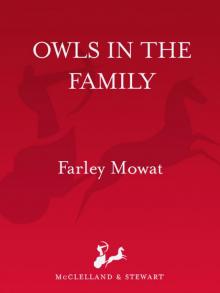 Owls in the Family
Owls in the Family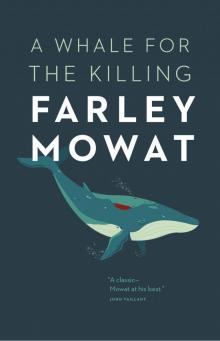 A Whale for the Killing
A Whale for the Killing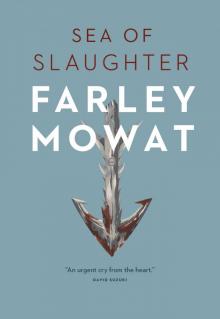 Sea of Slaughter
Sea of Slaughter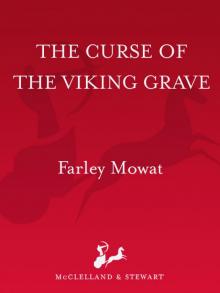 The Curse of the Viking Grave
The Curse of the Viking Grave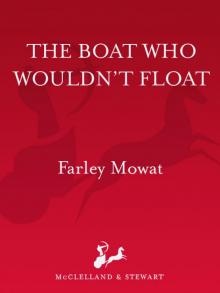 The Boat Who Wouldn't Float
The Boat Who Wouldn't Float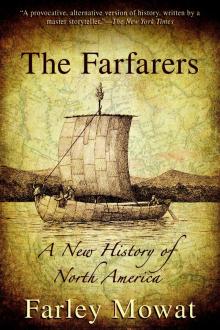 The Farfarers: Before the Norse
The Farfarers: Before the Norse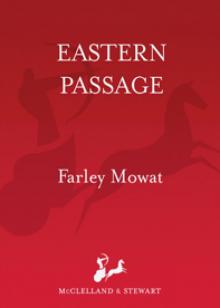 Memoir
Memoir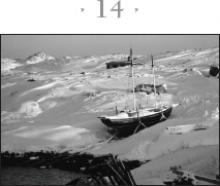 Bay of Spirits: A Love Story
Bay of Spirits: A Love Story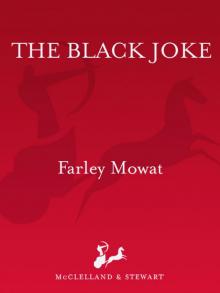 The Black Joke
The Black Joke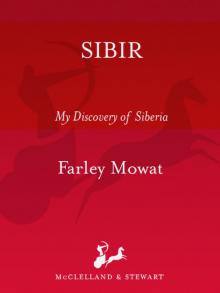 Sibir: My Discovery of Siberia
Sibir: My Discovery of Siberia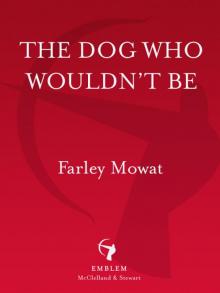 The Dog Who Wouldn't Be
The Dog Who Wouldn't Be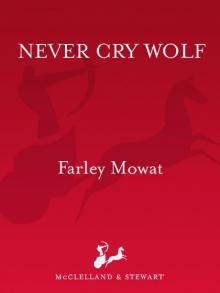 Never Cry Wolf
Never Cry Wolf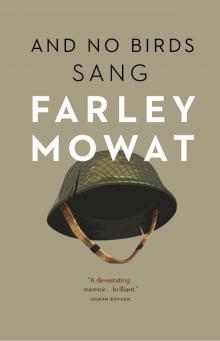 And No Birds Sang
And No Birds Sang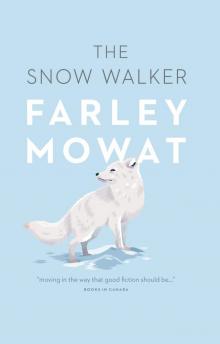 The Snow Walker
The Snow Walker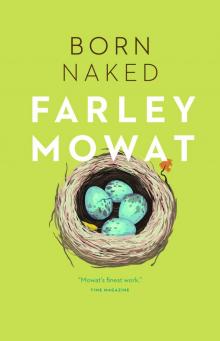 Born Naked: The Early Adventures of the Author of Never Cry Wolf
Born Naked: The Early Adventures of the Author of Never Cry Wolf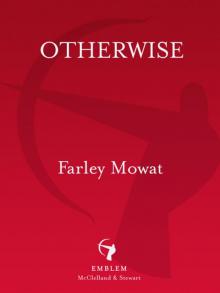 Otherwise
Otherwise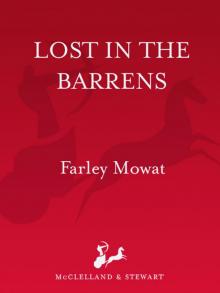 Lost in the Barrens
Lost in the Barrens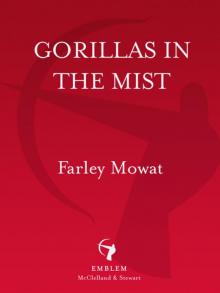 Gorillas in the Mist
Gorillas in the Mist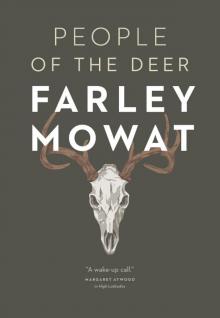 People of the Deer
People of the Deer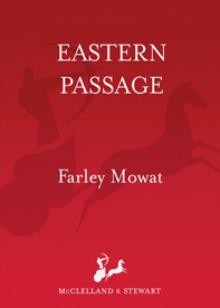 Eastern Passage
Eastern Passage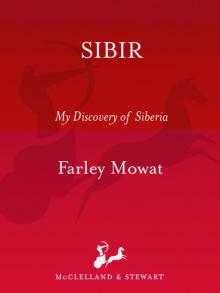 Sibir
Sibir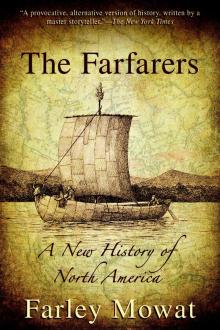 The Farfarers
The Farfarers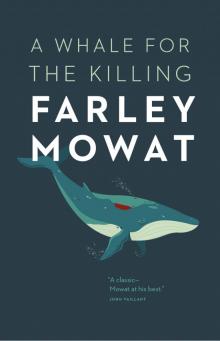 A Whale For The Killing (v5.0)
A Whale For The Killing (v5.0)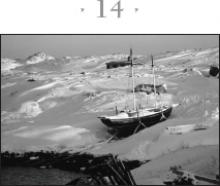 Bay of Spirits
Bay of Spirits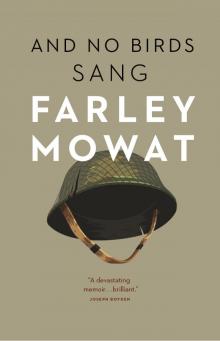 And No Birds Sang (v5.0)
And No Birds Sang (v5.0)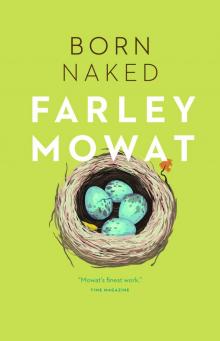 Born Naked
Born Naked